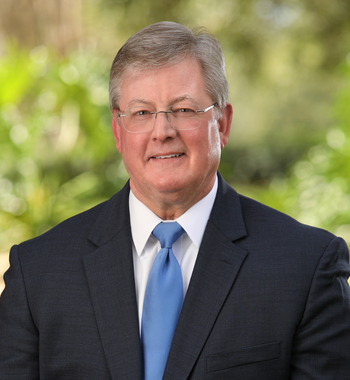By Mike Joyner
In agriculture, there is never a shortage of challenges, and 2024 will present its share. At the Florida Fruit & Vegetable Association (FFVA), we work every day to effectively advocate for our members to assure their voice is heard and that outcomes reflect their input. Here is a look at how that work will come to life this year.
Farm Bill Ramps Up

Congress passed the first farm bill in 1933 for the purpose of stabilizing farm prices. A farm bill is adopted by Congress every five years. The 2018 farm bill expired last year, but in November, Congress extended it for an additional fiscal year. This action fully funds the farm bill programs through Sept. 30, 2024. The House and Senate agriculture committees made it clear that the extension was not a substitute for passing a five-year farm bill. It is anticipated there will be significant activity on the farm bill during the first quarter of the year, as House and Senate leaders work to conclude their efforts before the 2024 election season is fully underway.
Through our work with the Specialty Crop Farm Bill Alliance, a group co-chaired by FFVA, International Fresh Produce Association, National Potato Council and Western Growers, we are working to advance more than 100 recommendations to help specialty crop growers stay competitive in an increasingly difficult environment. Priority recommendations include:
See farmbillalliance.org for these recommendations and more.
Workforce Rules in Play
Continued increases in the adverse effect wage rate (AEWR), which updated again on Jan. 1, remain unsustainable. Remember, there are now multiple AEWR rates based on job code, and those rates update twice a year. FFVA remains engaged in litigation challenging the AEWR methodology. Absent a decision in the case, the new AEWR methodology rule, released last February, will remain in effect.
Lastly, FFVA submitted comments in the fall on several proposed regulations, including the U.S. Department of Labor (DOL) H-2A worker protection rule, DOL Occupational Safety and Health Administration walkaround rule and the Department of Homeland Security modernizing H-2 program rule. FFVA expressed concern on several proposed regulations, including those which would extend union access to agricultural properties, erode due process rights in the H-2A program and circumvent exemptions in the National Labor Relations Act.
New Trade Committee Expected
In October, U.S. Trade Representative Katherine Tai announced a new trade advisory committee. The Seasonal and Perishable Agricultural Products Advisory Committee will provide advice and recommendations in connection with U.S. trade policy to promote the competitiveness of Southeastern U.S. producers of seasonal and perishable agricultural products. This is in direct response to continued calls from FFVA and others across the Southeast for immediate, effective and enforceable solutions to the devastating effects of unfair trade. At the time of this writing, the committee members had not been announced yet, but we are hopeful this group will be formed quickly and get to work to ensure the future of U.S.-grown fruits and vegetables.
Florida Legislative Session
The Florida legislative session kicked off in January, and several bills are worth watching for their potential impact on the state’s growers. But the first order of business is the state budget. The only thing legislators must do is pass a balanced budget. FFVA is advocating for funding for the University of Florida Institute of Food and Agricultural Sciences and the Florida Department of Agriculture and Consumer Services. This includes citrus research, fertilizer application rates and the Fresh From Florida promotion campaign. On the policy front, FFVA is watching bills that ensure consistency when permitting H-2A agricultural employee housing and when establishing heat protection standards. As always, FFVA is supportive of good policy that is developed with input from the industry to ensure it is workable and meaningful.
Mike Joyner is president of the Florida Fruit & Vegetable Association.









